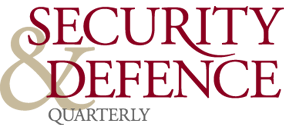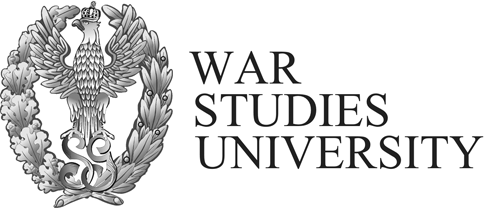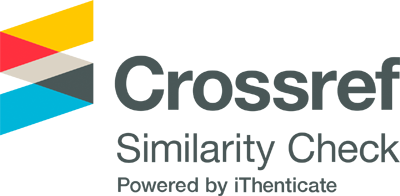Online first
Current issue
All issues
About
Aims and scope
Peer review process
Publication policy and ethics & malpractice statement
Editorial Board
Reviewers
Publisher
Guide for authors
Call for papers
Book Reviews
Special Issues Archive
New and emerging technologies in defence education, training and governance
RESEARCH PAPER
The hidden curriculum in military schools
1
Dr. Franjo Tuđman Croatian Defence Academy
Faculty of Humanities and Social Sciences
256b Ilica Street
10000 Zagreb
Croatia
Publication date: 2021-03-25
Security and Defence Quarterly 2015;6(1):89-104
KEYWORDS
ABSTRACT
Military education, as an integral and inseparable part of building the army as an institution, is changing its identity and tends to be becoming a place of development, changes, scientific research, quality teaching and education. Adoption of the National Curriculum Framework is creating conditions for these changes. Introduction of the military schools curriculum will inevitably lead to the hidden curriculum. In adult education (andragogy), the hidden curriculum appears in a more vigorous and influential form. The ability to function and the high reliability of the military system are based on hierarchy in which the formation of will is carried out from top downwards. The most prominent factors are
command, obedience and reporting. In such an environment, we recognise the positive and negative effects of the hidden curriculum in Croatian military schools.
REFERENCES (22)
1.
Anyon, Jean (1980) “Social Class and the Hidden Curriculum of Work.” Journal of Education 162 (1): 67-92. doi: 10.1177/002205748016200106.
doi: 10.1177/002205748016200106.
2.
Arterian, R. Hannah (2009) “The hidden curriculum.” University of Toledo Law Review 40: 280-296.
3.
Bašić, Slavica (2000) “Concept of the Hidden Curriculum.” Napredak (Progress) 141(2): 170-181.
4.
Bašić, Slavica (2009) “Pedagogical Abecedary: The Hidden Curriculum.” Školske novine (School Gazette) 8: 5.
5.
Brierly, David (2010) “The Hidden Curriculum.” Školske novine (School Gazette) 28: 10.
6.
Cockrell, Rubin (2010) The Hidden Curriculum Life Lessons you won’t learn in a classroom. Neshville, Unlock the Champion, Inc.
7.
Genschel, Dietrich (2001) “The Place and Role of the Military in Democratic Civilian Societies” Polemos 4: 13-22.
8.
Glatthorn A. Allan (2000) The Principal as Curriculum Leader. California: Thousand Oaks.
9.
ICAN Home, Modules, Social interventions: Hidden Curriculum. Available at URL http://www. autismnetwork.org/modules/social/hidden/index.html (15 November 2010).
10.
Hannay, M. Lynne (1985) „Cultural Reproduction through the Hidden Curriculum.” American Educational Research Association. 69th. March 31-April 4: 3-36.
11.
Jukić Tonća (2010) „The Relation Between the Curriculum and the Teaching Plan and Programme.“ Pedagogijska istraživanja (Pedagogical Researches) 7(1): 55-65.
12.
Kozina, Andrija (2012) Intercultural Education of Croatian Officers, U: Posavec, K. Sablić, M. (ur.), Pedagogy and Culture. Scientific Monograph: Intercultural Pedagogy: Towards New Developments of Science About Education. Zagreb: Hrvatsko pedagoško društvo Croatian Pedagogical Society, p. 197-207.
13.
Kozina, Andrija (2014) Key Competencies of the Military Teachers. In: Matijević, M. Žiljak, T. (ur.) Key Competencies in the Education of Adults. Miscellany of Papers of the 6th International Conference on Education of Adults. Zagreb: Hrvatsko andragoško društvo (Croatian Andragogical Society), p. 83-100.
15.
Matijević, Milan – Radovanović, Diana (2011) Pupil Oriented Teaching Zagreb: Školske novine (School Gazette).
16.
Myles, S. Brenda, Trautman, L. Melissa. Schelvan, L. Ronda (2004): The hidden curriculum Practical Solutions for Understanding Unstated Rules in Social Situations. APC Co. P. O. Box 23173 Shawnee Mission.
17.
Pastuović, Nikola (1996) “Managing and Reforming Educational Systems: Comment on Reforms in Post communist Countries.” Društvena istraživanja (Social Research) 1(21): 9-58.
18.
Pastuović, Nikola (2010) “The Education of Adults.” Andragoški glasnik (Andragogical Herald) 1(24): 7-19.
19.
Previšić, Vlatko (2005) “The Curriculum of Modern Education and School: Methodology and Structure.” Pedagoška istraživanja (Pedagogical Research) 2(2): 165-173.
20.
Previšić, Vlatko (2007) The Curriculum – Theories, Methodologies, Contents, Structure. Zagreb: Školska knjiga.
21.
Smerić, Tomislav (2002) “Military Profession, Comparative Orientation and Transformation of the Civil-Military Relations.” Društvena istraživanja (Social Research) 1(57): 67-88.
22.
Wren, J. David (1999) “School Culture: Exploring the Hidden Curriculum.” Adolescence 34(135): 593-596.
We process personal data collected when visiting the website. The function of obtaining information about users and their behavior is carried out by voluntarily entered information in forms and saving cookies in end devices. Data, including cookies, are used to provide services, improve the user experience and to analyze the traffic in accordance with the Privacy policy. Data are also collected and processed by Google Analytics tool (more).
You can change cookies settings in your browser. Restricted use of cookies in the browser configuration may affect some functionalities of the website.
You can change cookies settings in your browser. Restricted use of cookies in the browser configuration may affect some functionalities of the website.




